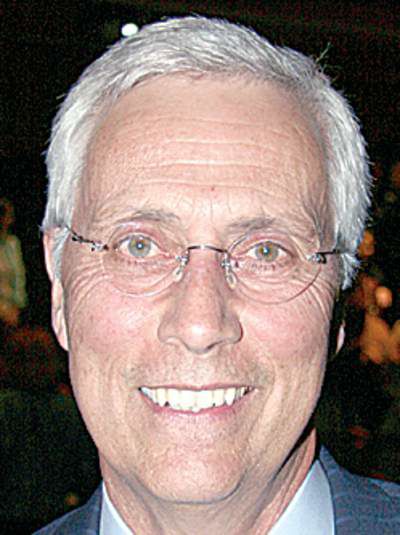Confidence is crucial, Umpqua CEO says
Published 5:00 am Thursday, April 9, 2009

- Ray Davis, president and CEO of Umpqua Holdings Corp.
Despite a serious ongoing financial storm, Umpqua Bank is beyond well-capitalized, expecting to quadruple its mortgage loans in 2009 and hopes within a year to pay back to the federal government the $214 million it received in November from the Troubled Asset Relief Program, said Ray Davis, president and CEO of Portland-based Umpqua Holdings Corp., the bank’s parent company.
In a wide-ranging discussion Wednesday evening about the bank and the economy to more than 300 people at a free forum at the Tower Theatre, Davis said consumer confidence played a huge role in exacerbating the recession and will be crucial to building the recovery.
He added that while investment banks deserve blame for inventing financial products such as derivatives and government regulators fell asleep at the switch, community banks such as Umpqua shoulder just as much blame for feeding the housing bubble that launched the recession by making too many loans to residential developers.
“Like our fathers and grandfathers said, ‘If it’s too good to be true, it probably is,’ (and) … we are responsible for making loans that perhaps should not have been made,” Davis said. “But we did, and we’ve dealt with it.”
Umpqua Bank is the largest regional bank in the Northwest, with more than $6.67 billion in total deposits as of Dec. 31, 2008, according to the Federal Deposit Insurance Corp. It operates 159 branches in Oregon, Washington and California.
Davis said the bank realized in early 2007 a housing bubble had formed and stopped making residential development loans. He said the bank quickly made clear to Wall Street that $800 million of its $6 billion loan portfolio was likely to be negatively impacted and the bank’s stock price dove accordingly.
But Davis said that decision to deal with those problem loans early has helped the bank retain a solid footing.
So much so that in October 2008, when Congress passed the $700 billion bailout bill, also known as TARP, to try to thaw credit markets, Umpqua was able to help, Davis said.
He recounted how a Treasury official called him in October and asked if Umpqua would be wiling to participate in the Capital Purchase Program, a component of the bailout plan. A hurried set of phone calls between him and Treasury officials ensued, ending a few days later with the bank receiving $214 million in federal funds in exchange for preferred shares of the bank’s stock.
Davis said the money was handed out only to healthy banks and was meant to help those banks unfreeze credit markets and give them capital to take over failed banks that would otherwise become the responsibility of the government through the FDIC.
Davis said Umpqua increased its lending and, in January, took over the failed Bank of Clark County in Vancouver, Wash., on behalf of the government.
But because of the stigma associated with the bailout of other nonbank financial institutions such as American Insurance Group and automakers, Davis said Umpqua hopes to pay back most if not all of the government money within the next 12 months.
“We were so thrilled the government selected Umpqua Bank to receive these proceeds to help the country get through these problems,” he said. “It was a compliment, we were thrilled, but through anger and overreaction, these strong banks that have stepped up to the line have been lumped with the same institutions that are failing and the stigma associated with that is unbearable for Umpqua. Our brand is unblemished and we will not be put into that place.”
Davis said he is an eternal optimist — “because the opposite isn’t attractive” — and believes Umpqua will come out of the recession stronger than when it entered it.






